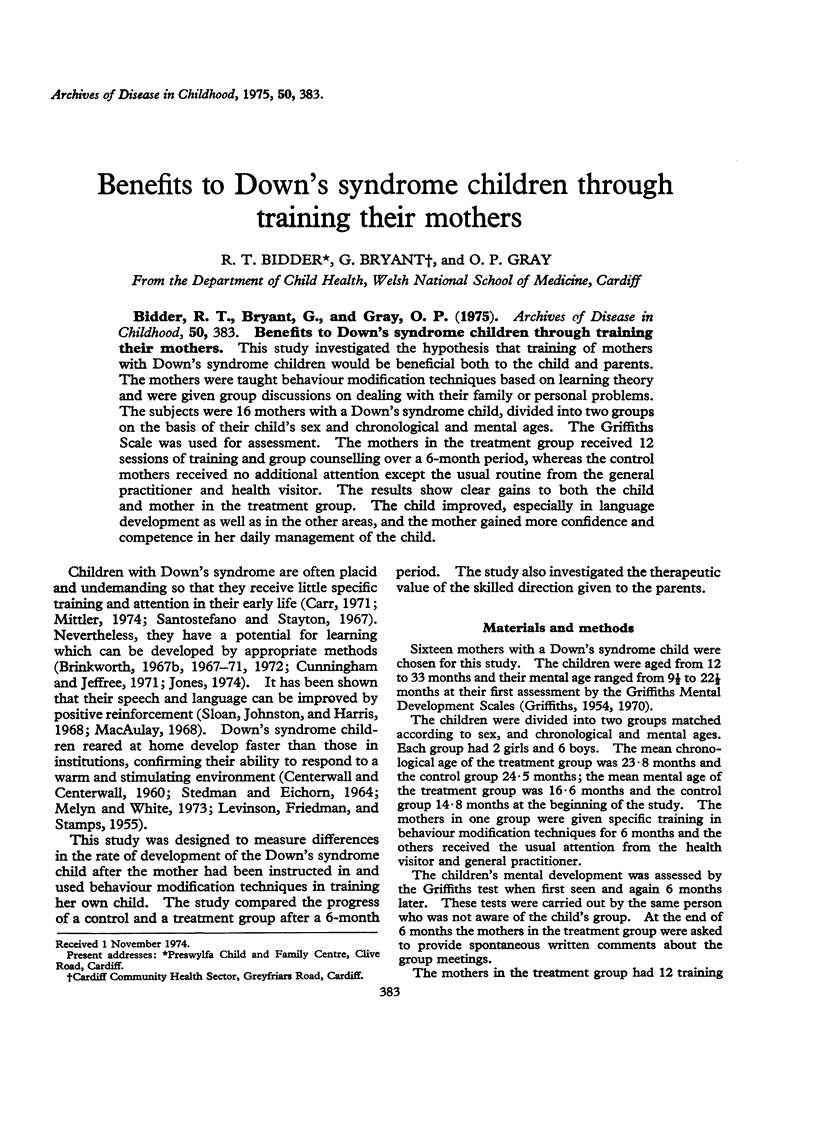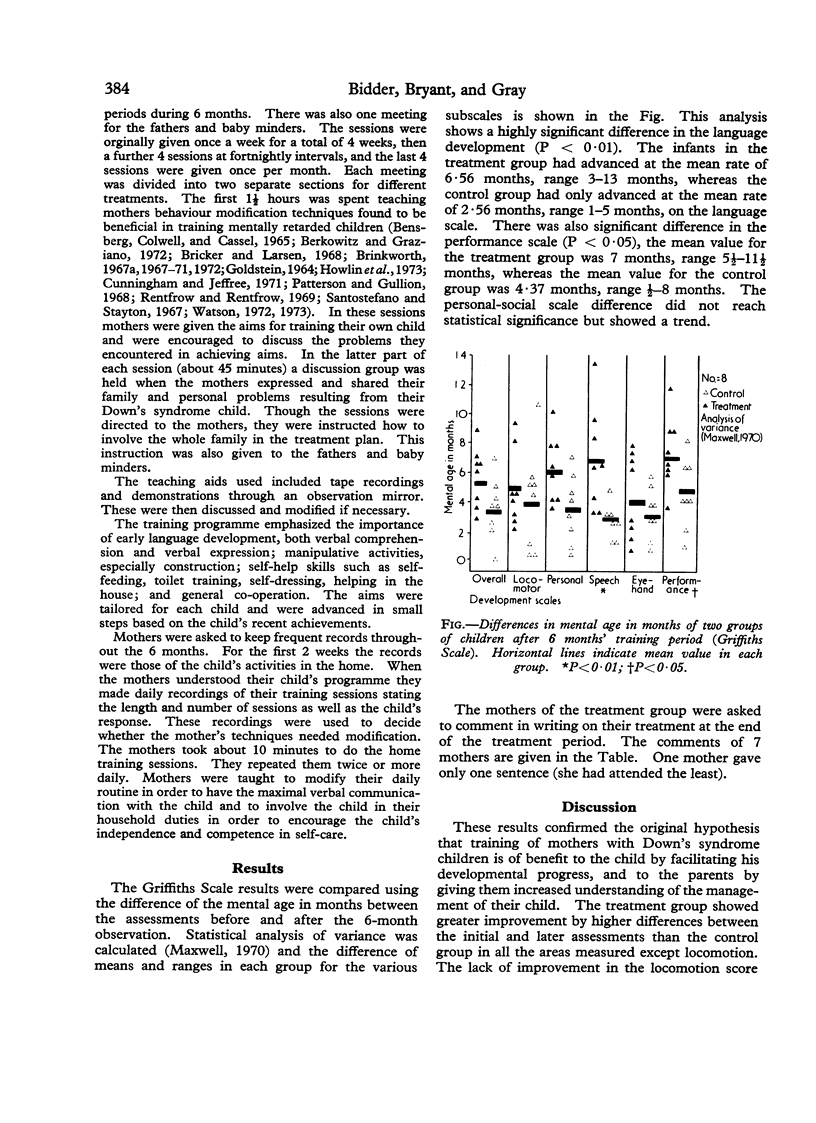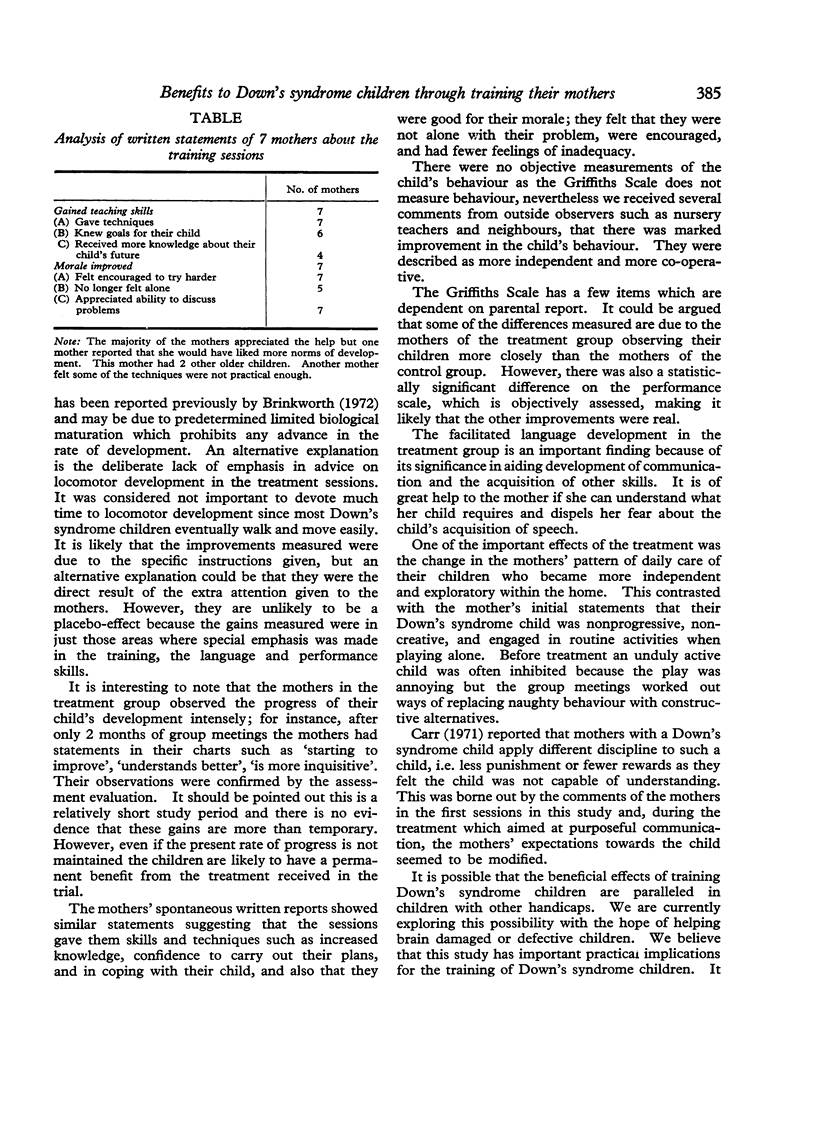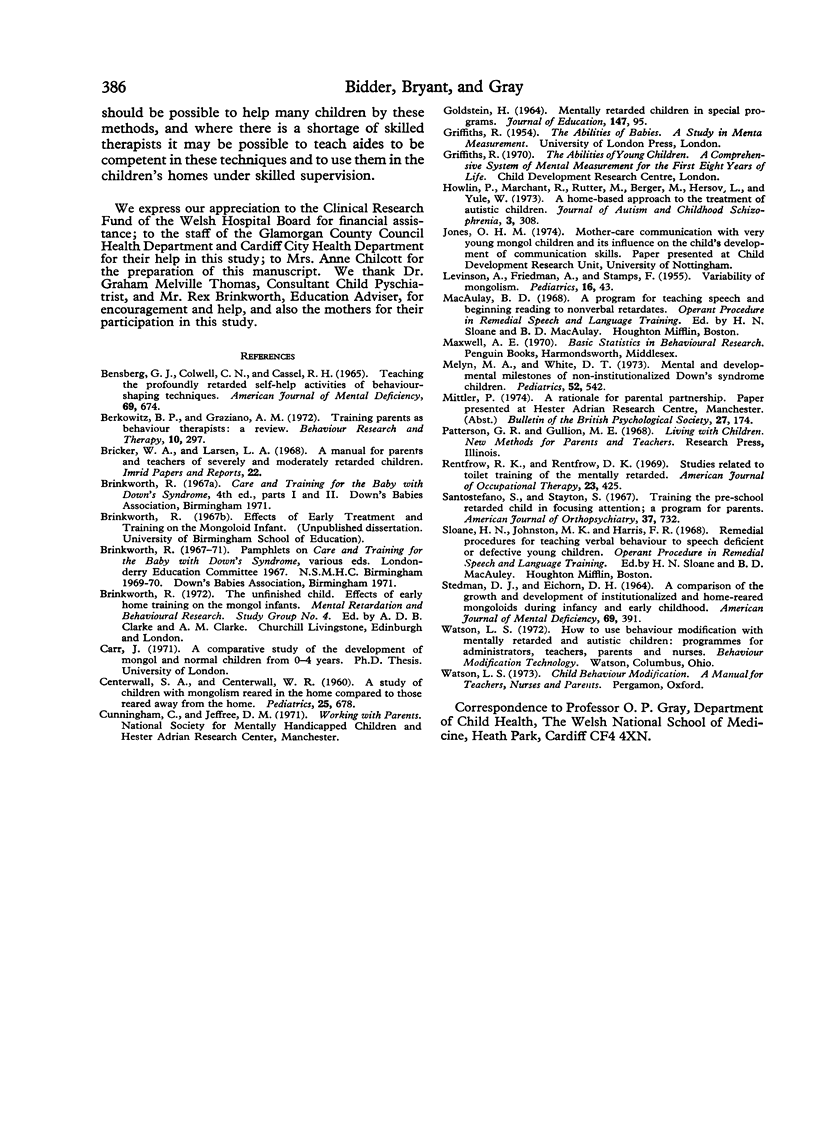Abstract
This study investigated the hypothesis that training of mothers with Down's syndrome children would be beneficial both to the child and parents. The mothers were taught behaviour modification techniques based on learning theory and were given group discussions on dealing with their family or personal problems. The subjects were 16 mothers with a Down's syndrome child, divided into two groups on the basis of their child's sex and chronological and mental ages. The Griffiths Scale was used for assessment. The mothers in the treatment group received 12 sessions of training and group counseling over a 6-month period, whereas the control mothers received no additional attention except the usual routine from the general practitioner and health visitor. The result show clear gains to both the child and mother in the treatment group. The child improved, especially in language development as well as in the other areas, and the mother-gained more confidence and competence in her daily management of the child.
Full text
PDF



Selected References
These references are in PubMed. This may not be the complete list of references from this article.
- BENSBERG G. J., COLWELL C. N., CASSEL R. H. TEACHING THE PROFOUNDLY RETARDED SELF-HELP ACTIVITIES BY BEHAVIOR SHAPING TECHNIQUES. Am J Ment Defic. 1965 Mar;69:674–679. [PubMed] [Google Scholar]
- Berkowitz B. P., Graziano A. M. Training parents as behavior therapists: a review. Behav Res Ther. 1972 Nov;10(4):297–317. doi: 10.1016/0005-7967(72)90054-x. [DOI] [PubMed] [Google Scholar]
- CENTERWALL S. A., CENTERWALL W. R. A study of children with mongolism reared in the home compared to those reared away from the home. Pediatrics. 1960 Apr;25:678–685. [PubMed] [Google Scholar]
- Howlin P., Marchant R., Rutter M., Berger M., Hersov L., Yule W. A home-based approach to the treatment of autistic children. J Autism Child Schizophr. 1973 Oct-Dec;3(4):308–336. doi: 10.1007/BF01538540. [DOI] [PubMed] [Google Scholar]
- LEVINSON A., FRIEDMAN A., STAMPS F. Variability of mongolism. Pediatrics. 1955 Jul;16(1):43–54. [PubMed] [Google Scholar]
- Melyn M. A., White D. T. Mental and developmental milestones of noninstitutionalized Down's syndrome children. Pediatrics. 1973 Oct;52(4):542–545. [PubMed] [Google Scholar]
- Rentfrow R. K., Rentfrow D. K. Studies related to toilet training of the mentally retarded. Am J Occup Ther. 1969 Sep-Oct;23(5):425–430. [PubMed] [Google Scholar]
- STEDMAN D. J., EICHORN D. H. A COMPARISON OF THE GROWTH AND DEVELOPMENT OF INSTITUTIONALIZED AND HOME-REARED MONGOLOIDS DURING INFANCY AND EARLY CHILDHOOD. Am J Ment Defic. 1964 Nov;69:391–401. [PubMed] [Google Scholar]
- Santostefano S., Stayton S. Training the preschool retarded child in focusing attention: a program for parents. Am J Orthopsychiatry. 1967 Jul;37(4):732–743. doi: 10.1111/j.1939-0025.1967.tb00515.x. [DOI] [PubMed] [Google Scholar]


